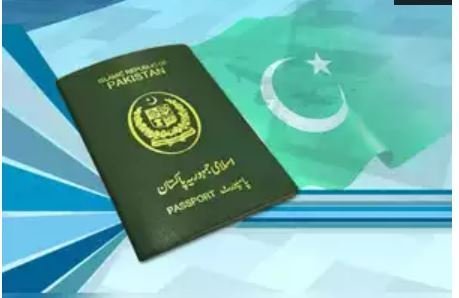Pakistan’s Current Crisis:
Pakistan, a nation at a crossroads, finds itself grappling with multifaceted challenges on the political, social, economic, and global fronts. The intricate interplay between political leadership, the establishment, and the army has contributed to the current crisis, impacting the country’s stability and standing in the global arena. The history of mismanagement started since its inception i.e. back to 1947 when it got its independence from British colonial power along with its neighbor India. However, there are very few lessons learned than the repeat of mistakes and blunders which continued unabatedly by different regimes throughout the past 75 years. From Liyaqat Ali khan to Imran Khan till the recent interim government, almost all the regimes have been tweaked, twisted, swapped & influenced externally.
It is also evident that democracy and public mandate are just face value and hardly matter when it comes to change of regimes for convenience. There looks scant respect for democratic processes and public opinion. After independence, Pakistan made some half-hearted attempts to revisit the colonial justice system, but such efforts lacked political ownership and public support from the masses. Even after seven decades of independence, Pakistan’s overall system still functions on a model that is unable to meet public expectations. This is substantiated by dismal standings record on global indexes like public order and security, criminal justice, human rights, and even the rule of law index.
Five Major Contributing Factors to Pakistan’s Crisis:
1. Political Instability:
Frequent changes in political leadership and a lack of continuity in policies have led to instability. This has hindered long-term planning and sustainable development, leaving the nation in a perpetual state of uncertainty. This unstable, unfriendly has been reflected in terms of very low foreign investment which is a major booster of economic growth. The cascading effect of non flourishing business and no new industry set up further deepened the crisis of employment generation. The most recent example of the most popular leader Imran Khan was also put behind bars which seems political vendetta and internal animosity across the political spectrum.
2. Economic Mismanagement:
Pakistan faces economic challenges, including high inflation, a large informal economy, and a growing debt burden. Economic mismanagement, corruption, and an inconsistent regulatory environment have impeded economic growth and hindered efforts to alleviate poverty. The governments of different times always showcased the false development to the public at large systematically hiding behind the large-scale debts from global funding institutions.
3. Security Concerns:
Ongoing security issues, particularly in border regions, contribute to internal displacement, disrupt economic activities, and deter foreign investment. Persistent security challenges also strain relations with neighboring countries. Instead of resolving these key security issues, regimes have capitalized on them during the elections and gained political mileage. At times, even created false alarms of security from the neighbors just to fan public opinion thus deflecting the real internal issues.
4. Global Diplomatic Isolation:
Pakistan’s global standing has been affected by diplomatic challenges, including strained relations with certain nations. This isolation hampers international cooperation, trade, and access to foreign aid. During the earlier Cold War period, Pakistan enjoyed the backing of the US and other developed nations in terms of financial assistance and aid consistently however there is a lack of deficit post 9/11 scenario specifically accusations of patronage of extremist groups in the country. This has dented diplomatic advantage globally resulting in the isolation of many aspects of cooperation and relations.
5. Civil-Military Relations:
The complex relationship between the civilian government, the military establishment, and intelligence agencies has at times resulted in power struggles. This dynamic can divert focus from critical issues and hinder effective governance. This has always been a cat-and-mouse game between the political class and Military wherein again a lack of trust and power tussle for domination played a significant role. In doing so both parties forgot to assess the impact on its social, economic, and other factors.
Immediate Remedies for Pakistan’s Recovery:
1. Political Stability and Consensus:
Establish a stable political environment through consensus-building among political parties. Encourage a unified approach to key issues, providing a foundation for long-term development. A transition from mere lawmaking to an implementation-centric, public service approach is needed. An effective legal framework will ensure institutional accountability and may guarantee the protection of civil liberties.
2. Economic Reforms:
Implement comprehensive economic reforms, focusing on reducing corruption, improving the business environment, and attracting foreign investment. Fiscal discipline and targeted social welfare programs can address economic disparities. Nonetheless, the present ‘macroeconomic stability’ is superficial and fragile, only a small shock away from falling apart The underlying economic conditions remain stressed.
3. Security and Counterterrorism Measures:
Strengthen security measures to address internal and external threats. Collaborate with neighboring countries to foster regional stability, promoting economic integration and reducing security risks. The dialogue on complex disputes needs to be promoted with its border nations instead of pushing a combative approach.
4. Diplomatic Outreach and Engagement:
Prioritize diplomatic efforts to improve relations with key global players. Actively participate in international forums, fostering partnerships that can contribute to economic development and regional stability. Promote easy trade and other economic measures that will be mutually beneficial for all the participating border nations.
5. Institutional Strengthening:
Strengthen democratic institutions, ensuring their autonomy and effectiveness. This includes judiciary, electoral bodies, and anti-corruption agencies, fostering a robust governance framework. The clash among the different institutions recently has become the hallmark of chaos when it comes to delivering and implementing constitutional obligations in true spirit.
Pakistan’s current crisis demands a comprehensive and collaborative approach from its political leadership, establishment, and military. Addressing the root causes and implementing immediate remedies is essential for steering the nation towards stability and progress. A comparative analysis with India highlights areas where Pakistan can learn and adapt strategies for sustainable development and global integration. The path to recovery requires a united effort to overcome challenges and build a resilient and prosperous future for the people of Pakistan and regional stability.



